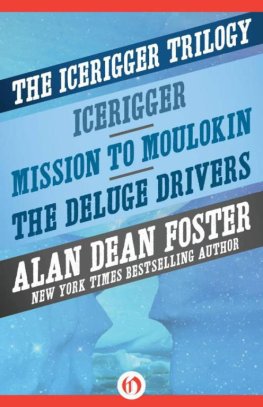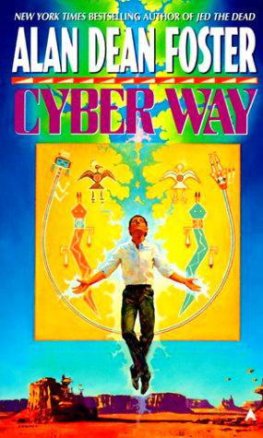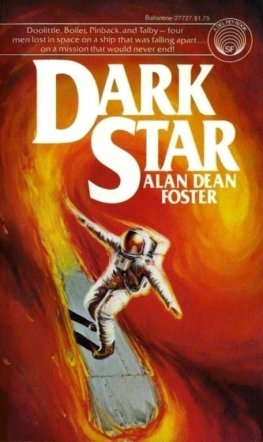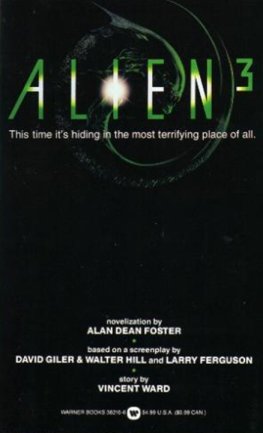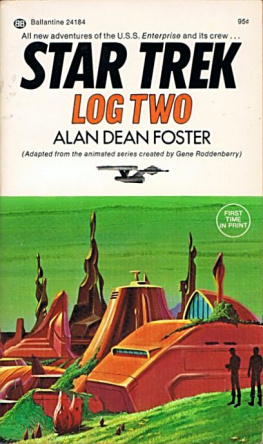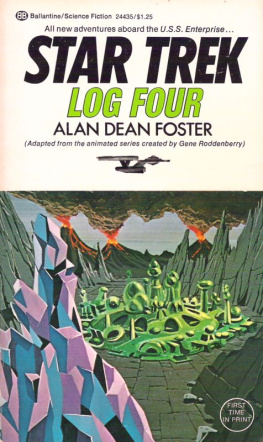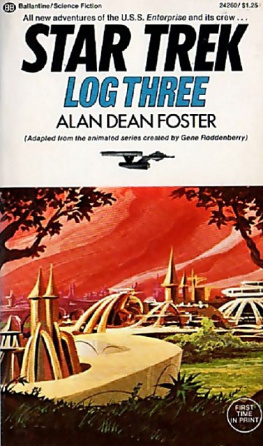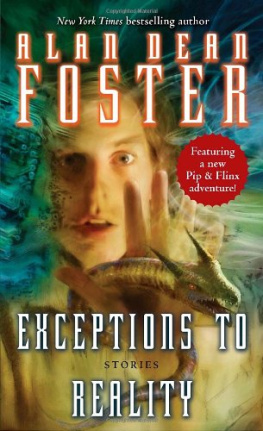Alan Foster - Sagramanda, a Novel of Near-Future India
Here you can read online Alan Foster - Sagramanda, a Novel of Near-Future India full text of the book (entire story) in english for free. Download pdf and epub, get meaning, cover and reviews about this ebook. genre: Science fiction. Description of the work, (preface) as well as reviews are available. Best literature library LitArk.com created for fans of good reading and offers a wide selection of genres:
Romance novel
Science fiction
Adventure
Detective
Science
History
Home and family
Prose
Art
Politics
Computer
Non-fiction
Religion
Business
Children
Humor
Choose a favorite category and find really read worthwhile books. Enjoy immersion in the world of imagination, feel the emotions of the characters or learn something new for yourself, make an fascinating discovery.

- Book:Sagramanda, a Novel of Near-Future India
- Author:
- Genre:
- Rating:5 / 5
- Favourites:Add to favourites
- Your mark:
- 100
- 1
- 2
- 3
- 4
- 5
Sagramanda, a Novel of Near-Future India: summary, description and annotation
We offer to read an annotation, description, summary or preface (depends on what the author of the book "Sagramanda, a Novel of Near-Future India" wrote himself). If you haven't found the necessary information about the book — write in the comments, we will try to find it.
Sagramanda, a Novel of Near-Future India — read online for free the complete book (whole text) full work
Below is the text of the book, divided by pages. System saving the place of the last page read, allows you to conveniently read the book "Sagramanda, a Novel of Near-Future India" online for free, without having to search again every time where you left off. Put a bookmark, and you can go to the page where you finished reading at any time.
Font size:
Interval:
Bookmark:
SAGRAMANDA
A NOVEL OF NEAR-FUTURE INDIA
by ALAN DEAN FOSTER
To the young people of India, who are waking up.
To Kali at Kolkata, apologies for Gunga Din.
To the tigers and barasingha of Kanha, thanks for the memories.
To Dimple at Kanha, who taught me how to make pakhoras.
To Kiran Moktan at Darjeeling, for letting me spend time with the snow leopards.
To the carvers of Khajuraho, eternal life.
To the silent stories of Orchha.
To the friendly rats of Deshnok, more milk and cookies.
To the people of Jaisalmer, more water and less heat.
Most especially, to Nagy, for his patience and skill.
Four weeks, 3000 kilometers, drive on the right, and
remember: Camels and elephants have the right of way.
*1*
There are the poor, and there are the terribly poor. Below them are the wretchedly poor. And then there are those who literally have nothing, not even hope. To them, the term is not even any longer applicable. That so many of these utterly forgotten manage to reach adulthood is itself amazing. To belong to this class of humanity is to view the alley as mansion, the street as home, and to live most if not all of one's miserable life in the gutter.
Taneer had once seen such a man, not much older than himself, walk quietly up to others, hand outstretched, one finger upraised. Not as an insult, but as a silent request. The man was asking for a single rupee. One rupee. About two American cents. Taneer had watched as the man stopped outside an eating place. Not a restaurant, really. A few rough wooden tables and chairs, not even a roof over the stall where the food was cooked in sizzling open skillets and pans. The man had stood there with his suppliant, petitioning, upraised finger until the exasperated proprietor had heaved a very large pot brimming with dirty dishwater square in the man's face. The patrons, most of whom were not a great deal better off than the beggar, had laughed heartily.
The man had blinked away the dirty water coursing down his face and seeping into his eyes. He'd said nothing, had not wiped at the two-legged column of walking filth that was himself. He had not cursed, or started to cry. Instead, he had remained as he had prior to the polluted dousing, finger upthrust, waiting. After another ten minutes of being ignored he had moved on, the white and brown rags that cloaked his slender form held together with sweat and grime, wearing little more than his dignity.
That was India.
That was Sagramanda.
It like to broke Taneer's heart.
Remembering the dignified beggar, Taneer gave rupees when he could safely do so, without fear of being mobbed. He could not do so at present because he dare not do anything that might attract attention to himself. If they caught him, those who were after him would break him much more than emotionally. They would break his bones.
What he had discovered after all those days and nights spent slaving in the lab, what he had subsequently stolen from it and from his outraged employers, could not destroy the world-but it could remake it. Because of his discovery, and his decision to abscond with it, he was going to end up either very rich or very dead. For Depahli's sake as much as his own, it had to be the former.
Right now, more than anything else, he needed time. Time to consolidate his thoughts as well as his gains. Time to determine whether he would be more successful as a scientist or as a thief. He had to find a place to hide, where he could think, and plan, and decide on his next move. Fortunately, his home was Sagramanda.
In a city of more than one hundred million people, even a formerly honest man like Taneer Buthlahee stood a fair chance of losing himself.
Sanjay Ghosh had determined to leave the village for good when the leopard ate his dog. The household canine was not the first local chil dren's favorite the leopard had eaten. The uninvited occasional visitor had acquired a taste for defenseless family pets, and the Ghoshes' dog was either the tenth or eleventh it had snatched from the village, depending on whether or not the Toshwahlas' cat had been taken by it or killed by a snake.
The leopard lived high up in the hills that were still covered by jungle and had not yet been cut and burned for cooking charcoal.
Years ago, the state government had added the hills to an existing wildlife preserve and had forbidden the cutting of trees within the new boundaries. While it was true that the stream that ran by the village subsequently ran clearer and purer than ever, and did not flood nearly so often, the animals that lived in the forest had grown bolder with time and had lost their fear of being hunted. One could tolerate monkeys, Sanjay believed. They were always fun to watch, even when they were making trouble or trying to raid the fields, and were sacred to Hanuman besides. But a leopard
The big cat was protected, local officials had insisted when the village headman had gone to town to complain. It was in hope of seeing such animals that money-spending tourists came to visit the preserve. But Sanjay and his family and friends never saw any of the foreign money that they suspected ended up, like so much similar money, in politicians' pockets in Delhi and Mumbai and Sagramanda.
Would the village sacrifice its cleaner, fresher water to get rid of the leopard? A wandering priest had taken a poll on his PDA. The verdict was that Sanjay's fellow villagers would tolerate the big cat until and unless it switched from eating kittens and dogs and chickens to the villagers themselves. Perhaps then they could interest a local news paper, if not a local government official, in their ongoing predicament.
Sanjay, however, was determined not to wait around to find out if he was to be the one signifying a step up in the leopard's diet. Small, dark, and tough, with a mustache as fine as any in the village, he had spent hour after hour late into the nights at the village computer terminal. He had learned English, and even some German. English and computers were the keys to everything, he knew.
Now he felt that he was at last ready to take the big step, to move away from subsistence farming and to join the modern economy. He was going to earn real money. The incident of the leopard and the family dog had only been the final push he needed.
"We have to find a way to make a better life for our children than can be found in this village," he had told his wife on more than one occasion. "To do that, a man needs money. There is no money here. In Sagramanda, there is money."
"There is also death." Chakra had spoken to him from her side of the bed. She had the face of a Bollywood star and the body of a whore, which not even long days of hard work in the fields had been able to diminish. Yet. One of Sanjay's goals was to preserve both-for her self-image as well as for his own pleasure. The only reason he had not left the village for the city earlier was his fear of leaving her behind. In his absence, other men would be tempted by her apparent availability. The world would not be a natural place if it were otherwise.
Even with worry in her voice and fear in her eyes for his prospects, she had repeatedly reassured him on that score.
"I love only you, Sanjay," she had cooed as she had stroked him to hardness. "I love that you love only me, and I know you will be true to our family even should you find yourself among the many temptations of Sagramanda. Also," she had added with a smile while giving him a painful twist, "if I find out that you have cheated on me, or spent the money you are so desperate to make for us on another woman, I will find you and feed your balls to the leopard, may it make an interesting change of diet for him."
With a woman like that waiting for him, he had mused, how could he become anything other than a success?
Font size:
Interval:
Bookmark:
Similar books «Sagramanda, a Novel of Near-Future India»
Look at similar books to Sagramanda, a Novel of Near-Future India. We have selected literature similar in name and meaning in the hope of providing readers with more options to find new, interesting, not yet read works.
Discussion, reviews of the book Sagramanda, a Novel of Near-Future India and just readers' own opinions. Leave your comments, write what you think about the work, its meaning or the main characters. Specify what exactly you liked and what you didn't like, and why you think so.



